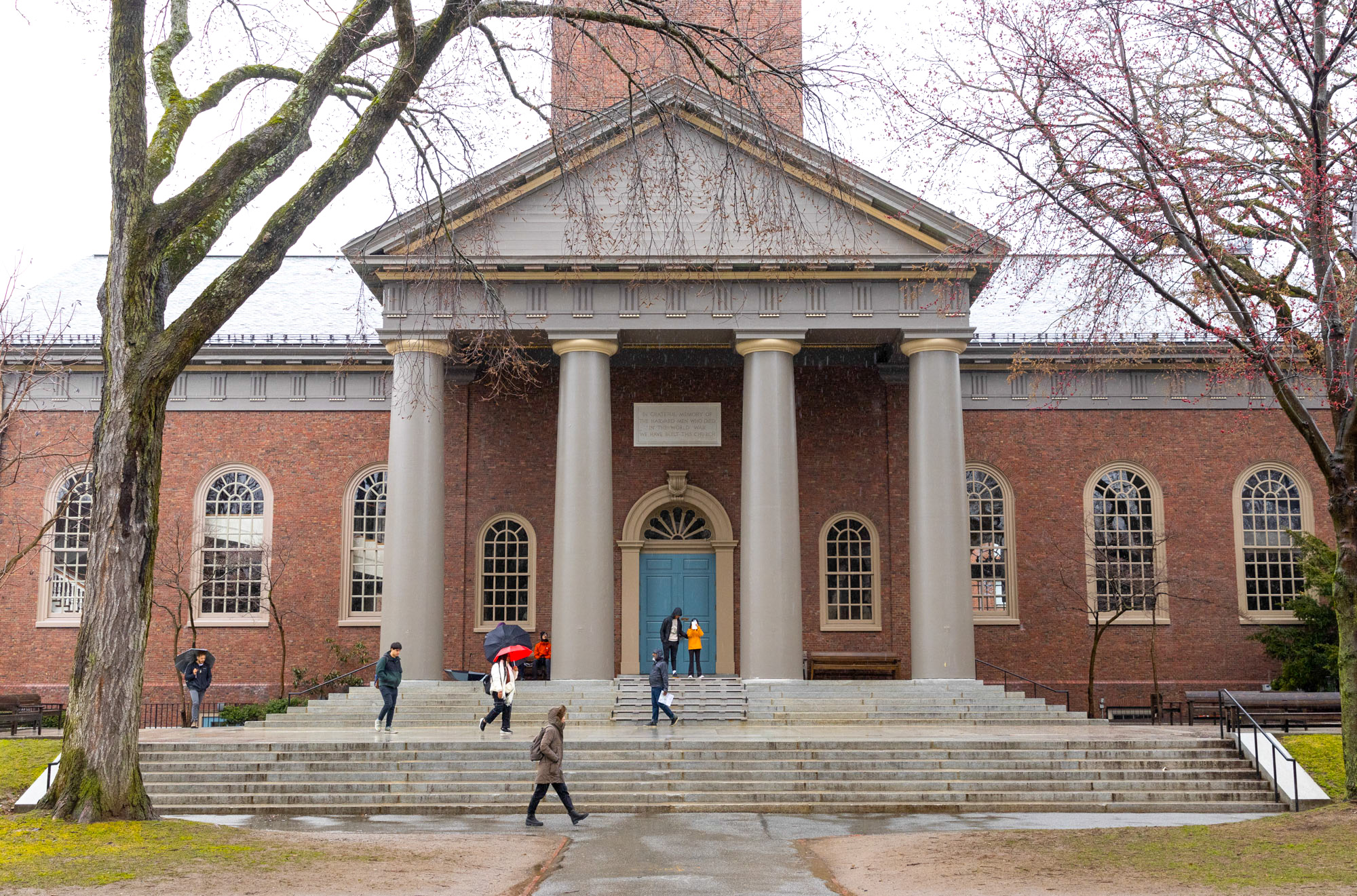Members of the Boston University chapter of the American Association of University Professors applauded the victory of Harvard University in its lawsuit against the Trump administration.

A federal judge ruled Sept. 3 that the withholding of federal grant funding violated Harvard’s First Amendment rights, blocking the freeze of $2.2 million in funding to Harvard.
Mary Battenfeld, co-president of the BU AAUP, said the case is a “slam dunk win” on any legal grounds, but she understands the political sway the Trump administration has at the nation’s highest court.
“[The feeling] was happiness, of course, tempered with the understanding that the government is going to appeal,” Battenfeld said. “If it goes up, ultimately, to the Supreme Court, we know the Supreme Court is practically in the palm of the Trump administration’s hands and will not necessarily rule by what is actually constitutional.”
The Trump administration claimed the freeze came in response to Harvard’s handling of antisemitism on campus.
Zohra Ahmed, an associate law professor and BU AAUP member, said she understands why the Trump administration would go after higher education given its “open embrace of authoritarianism.” She said attributing the funding freeze to antisemitism is a method of reframing anti-war sentiment to threaten civil rights.
“[Higher education is] where critical thinking is fostered, where progressive values are fostered,” Ahmed said. “Academic freedom is something that … would be very threatening to an authoritarian ruler trying to create a particular set of truths.”
Battenfeld said weaponizing antisemitism is part of the Trump playbook, referencing the Trump-backed Heritage Foundation’s “Project Esther” — a national blueprint to counter antisemitism.
One strategy outlined in Project Esther is to “disrupt and degrade networks and deny them the resources they need to conduct and sustain antisemitic behavior,” according to the Heritage Foundation’s website.
The funding withheld at Harvard supported long-term medical, engineering and scientific research, such as tuberculosis and chemotherapy, prolonged space travel and pandemic preparedness.
U.S. District Judge Allison Burroughs determined there was “little connection” between antisemitism and the research that had its funding cut, according to case documents.
“If the Trump administration is worried about individual students feeling unsafe, it’s not clear to me why a researcher who’s doing work on cancer has anything to do with it,” Ahmed said.
Jennifer Snyder-Cappione, an assistant professor at BU Medical Campus and member of the BU AAUP steering committee, said the freeze on Harvard’s funding in April was “chilling.”
Snyder-Cappione faced constraints with her own research — which investigated the impact of stress from systemic racism on immune responses — when she was unable to resubmit an application for a National Institute of Health Research Project grant. She joined the AAUP shortly afterwards.
“I felt that was a violation of my basic rights as a U.S. citizen,” she said. “We’re now at risk of no longer living in a free society.”
The case against the Trump funding freeze was initially brought by the national and Harvard AAUP chapters before the Harvard administration joined in and consolidated the cases.
Snyder-Cappione said it’s important for the AAUP to work with student and faculty groups because there’s “power in the people.”
“We all have a common goal, which is to preserve our academic freedom and the rights of everyone on campus,” she said.
While universities are scared of becoming the Trump administration’s next target, Ahmed said there must be a “sectoral fight” by all members of university communities to both support university leadership and remind them of their employees’ dedication to the mission of higher education.
Battenfeld said the BU AAUP is disappointed with BU administration’s strategy of “lying low” to avoid federal attacks on funding. She also does not believe universities should make deals with the Trump administration to preserve funding as universities like Columbia University, Brown University and University of Pennsylvania have done.
“There’s a lot of faculty members who are doing a lot of work over time to address problems, and I wish administration would join us in that work more openly and strongly than they have before,” she said.
This month, the BU AAUP is aiming to pass a “mutual academic defense compact” at its faculty council meeting, Battenfeld said. If approved, BU would join other universities, including those in the Big 10, in standing up together against Trump’s demands.
The compact would act as a “NATO for higher education,” Battenfeld said, meaning that if one member institution is attacked, others will join in defense.
The compact is partly symbolic, but symbolism is still valuable, Battenfeld said.
Ahmed said universities cannot take for granted the court decision in the Harvard case, and it’s just the beginning of the fight.
“We should be relieved, rather than surprised, that the court could apply the law in the most obvious and not-contorted way because it’s clear that the Trump administration’s efforts are illegal,” Ahmed said. “It’s heartening to see that the judge ruled the right way, but it didn’t happen without a fight.”
Snyder-Cappione said the Harvard ruling will “reenergize” university communities and make them less likely to acquiesce to the Trump administration’s demands.
“When you fight, you can win,” she said. “This will encourage more people to fight, rather than try to fly under the radar or change their research focus based on what they think the administration wants.”
She looks forward to continuing AAUP’s work at BU, adding Harvard’s victory should give BU a reason to be confident that it can resist a deal with the Trump administration.
“The AAUP is going to continue to do great things,” she said. “The steering committee is really trying to organize and be sure that BU continues to live by its values, and that we can preserve our academic freedom here on campus.”